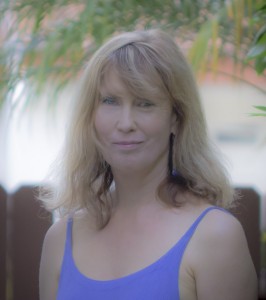Are you experiencing any of the following symptoms?
- Sadness
- Fatigue or lack of energy
- Loss of interest in activities that used to bring pleasure
- Feelings of hopelessness
- Dificulty concentrating
- Irritability and anger
- Sleep difficulty with falling asleep or staying asleep
- Feeling worthless or guilty
- Trouble concentrating, remembering, planning, or making decisions
- Thinking that life isn’t worth it or of suicide
What is depression?
Depression is a combination of feelings, thoughts, behaviors, physical sensations and belief systems that can create a disabling mental health condition. Around 10-15% of the population ( over 1 billion people on the planet ) struggle with depression. Many are accomplished and well known individuals. The depressed person’s life is out of balance in some way, in some area of his or her life.
What are the types of depression?
- Dysphoria is a term used for periods of time when an individual is caught in the habit of negative thinking or feelings. A brief period of rest, withdrawal, or a change in circumstances restores your energy or gets you back on track with your life.
- Dysthymia is a condition where chronic symptoms of depression appear. Over the long term, mild symptoms of depression continue to occur and reduce an individual’s capacity to enjoy his or her life or to find satisfaction or pleasure in daily activities.
- Major Depression is diagnosed when a combination of symptoms occurs for longer than a few weeks and causes disruption in one or more areas of an individual’s life. A diagnostician determines whether the depression is mild, moderate or severe and whether it is a single occurrence or a pattern of repeated episodes.
- Bipolar Disorder or manic-depressive illness is a condition where the lows of depression alternate with the highs of mania. The cycle changes can be rapid, occurring throughout a day or suddenly or the changes can be slower, occurring over longer periods and more gradually.
What are the signs and symptoms of depression?
In addition to the symptoms listed above, depressed individuals frequently struggle with:
- getting out of bed in the morning
- lack of pleasure in life
- feelings of detachment and numbness
- avoidance of friends and social activities
- physical discomfort such as headaches and abdominal or chest pains
- restlessness
- self critical and negative thinking
- feelings of guilt
- ruminating
- excessive behaviors or activities such as sleeping, eating, or drinking alcohol
- thoughts of death or suicide
What causes depression?
 Depression may be triggered by
Depression may be triggered by
- life stresses such as loss
- relationship break ups
- financial problems
- being treated unfairly
- trauma in childhood or teen years
- unhealthy lifestyles that contribute to physical problems
- avoiding distressing personal or relationship issues
- and getting stuck in the habit of using unsuccessful coping strategies.
Genetic research has shown a 67% likelihood of depression occurs in identical twins. Challenging events such as marriage, divorce, career changes, menopause, grief, illness and loss can trigger feelings of depression and hopelessness resulting in a loss of joy and appreciation in every day life. Life becomes an unwelcome chore. Mistaken beliefs from childhood, especially when resulting from trauma often cause contraction, shame, pain, and a freeze response that can prevent you from responding to life from a place of strength and resilience.
When you are upset about something that is occurring in your life, the mind directs its energy towards events such as unsettling relationship issues or work stress. The emotional center of your system pulls your focus and attention toward it. This can result in painful rumination or in getting stuck in a repetitive thought loop about what is disturbing to you. Effective approaches can be learned that will unlock that stuckness and result in you having the ability to use a more positive and productive approach in resolving the issue.
What are the best treatments for Depression?
A number of different approaches have been used to successfully treat depression including CBT, Mindfulness and Client-Centered Therapy. By changing unwanted behavioral, thought and belief patterns, you can transform your stresses into strengths and rediscover your ability to handle difficult situations with clarity and ease. Learning new somatic responses to handling difficult feelings empowers you to feel hopeful in the face of threat. Resolving early life experiences that resulted in trauma can bring a sense of wholeness into your life and lead to creative healing.
It is essential to develop a relapse prevention plan as part of your therapy process. Depression has a tendency to reoccur during periods of stress and loss. Daily and weekly plans that supports your mental health can help you to catch the periods of your life when symptoms increase at an early enough stage to allow you to respond in an active and effective way to prevent the worsening of symptoms.
 Through therapy, you can find help for anxiety and depression, reconnect to yourself and others and begin to feel the the happiness that is inside of you. Get in touch with your ability to experience joy, excitement and gratitude in a way that can transform your life.
Through therapy, you can find help for anxiety and depression, reconnect to yourself and others and begin to feel the the happiness that is inside of you. Get in touch with your ability to experience joy, excitement and gratitude in a way that can transform your life.
Allow the endings of your life to become the beginnings of something new and beautiful in your life. Build a fuller life and full reserves of energy and personal power by aligning with your true and confident self. With clarity, compassion, and creativity, I work with you to align with your true self and your higher purpose.
Request an appointment for help with anxiety and depression HERE

“When you begin to touch your heart or let your heart be touched, you begin to discover that it’s bottomless, that it doesn’t have any resolution, that this heart is huge, vast, and limitless. You begin to discover how much warmth and gentleness is there, as well as how much space.” – Pema Chödrön